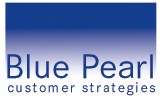Back to School Shopping for a Tender Foodie's Lunch
 Tuesday, August 14, 2012 at 4:00PM
Tuesday, August 14, 2012 at 4:00PM  Melanie Potock, MA, CCC-SLP tagged
Melanie Potock, MA, CCC-SLP tagged  back to school lunch,
back to school lunch,  dairy-free,
dairy-free,  food allergies,
food allergies,  gluten-free snacks,
gluten-free snacks,  soy-free
soy-free  Email Article
Email Article  Print Article in
Print Article in  Going to School,
Going to School,  Product Review
Product Review 
IT'S THAT TIME ALREADY?
YIKES! It’s August and it’s already time for back to school shopping. Got pencils, notebooks, glue sticks? Got any ideas for what to pack for school lunches, especially for a Tender Foodie? I do.
Here’s the deal: I’m all for those adorable little gadgets and Bento boxes with food arranged into creative scenes from the latest episode of Spiderman® - you know, the ones made out of intricately-sliced red peppers and black beans and celery strands fashioned into a spider web. But, the first few weeks of school are so HECTIC – who has time? Take the pressure off and try some of these new, healthy and allergy-friendly alternatives in convenient small portions for kids of any age. Yes, they cost a bit more and perhaps you might not put these in your kids’ lunches/snacks every day, but that also makes them a nice treat every once in a while.
(See Notes on Potential Allergens at the end of the Article).
FRUIT BLISS™

Let go of the stress and start experiencing a little Bliss. Fruit Bliss’ ™ soft, dried and unsulphured (preservative-free) Turkish apricots come in a mini 1.76 package. Moist but not sticky, they’re packed with iron and fiber. They’re Certified Vegan and Non GMO Project Verified and just plain delish! The mini apricots are sold at 39 Whole Foods stores across the Mid-Atlantic region, as well as many natural food stores from Maine down to Florida. Want some now? Use coupon code 10FRUIT for 10% off any order online.
COCOMAMA™

For kids old enough to operate a microwave in their cafeteria, try Cocomama™ Quinoa Cereals in Banana Cinnamon, Wild Blueberry and Orange Cranberry flavors. Simply tear open the BPA-free pouch and warm slightly for 20 seconds and
wah-lah – it’s quinoa! That means scrumptious gluten-free, dairy-free, soy-free and vegetarian organic quinoa sweetened with light coconut milk and other yummy ingredients. Unlike oatmeal, which can transform into glue in a matter of minutes, kids will love the consistent texture with no extra lumps, bumps or worse - drippiness. Cocomama™ is currently available in 28 Whole Foods in the North Atlantic Regionand launching this month with Whole Foods nationally, as well as Wegman’s stores in September.
Just as easy, go online to purchase 6-packs for $21 (10% discount over retail). The convenience and peace of mind knowing your child is having a nutritious protein-rich food when you need a quick addition to the lunch box makes it worth it. Plus, shipping for ANY order is always $3.99, so stock up.
purely elizabeth™

Recently, purely elizabeth™ created mini packs of their fabulous ancient grain granolas. Gluten-free certified, soy-free, no refined sugar and made with organic ingredients whenever possible, the 2 oz. bag mini bags even serve as their own bowl. Just pour in milk or a dairy-free alternative or ok, don’t; I am all for pouring it straight into your mouth. My fave is the Pumpkin Fig, but just as yummy are the Cranberry Pecan, Blueberry Hemp and Original flavor. A case of 8 bags is $22. Try packing a tall container (I love a Ball canning jar) of yogurt with alternate layers of frozen fruit to keep it cold till lunchtime. Your kids can add the granola on top for an instant yogurt parfait!
Simple Squares™

If your Tender Foodie can enjoy nuts, try a Simple Squares™snack bar. Choose from 4 flavors: Cinnamon Clove, Sage, Rosemary or Coconut. Each kosher bar is infused with organic herbs and contains unsweetened coconut, organic nuts,
organic honey, organic vanilla and a touch of sea salt. Made of “unfired fare™” to maintain the integrity of the nutrient rich bars, the sweet treats contain just 10 grams of sugar (must be the lovely organic honey) and a whopping 10% daily value of iron and 6 grams of protein. Now, that’s a satisfying snack that’s also good for your kids. Sold in natural food stores, via Abesmarket.com or simply visit the Simple Squares™ website, and use the coupon code GFD to get 10% off of these nutritious sweets!
Notes on potential allergens:
Fruit Bliss™ products are produced in a facility that processes soy, milk, egg, wheat, peanuts and tree nuts.
Cocomama™ products are not manufactured in a gluten-free facility, but the line is cleaned thoroughly and each batch is tested to 10 pmm. The products are gluten-free, dairy-free, and soy-free, but are not necessarily peanut or tree nut-free since that is not part of their testing process.
Purely elizabeth™ granolas are certified vegan by Vegan Action, certified gluten-free by GFCO and are non-GMO Project Verified.
Simple Squares™ are certified gluten-free and are soy and dairy-free with no refined sugars. Simple Squares packaging states “Good manufacturing practices are used to segregate ingredientsin a facility that processes other products, which may contain peanuts, tree nuts, wheat (gluten), milk, soy and/or eggs."
About Melanie
 Melanie Potock, MA, CCC-SLPMelanie Potock is speech language pathologist who specializes in feeding. Her work brings her into the homes and schools of her clients, kids, who for various reasons have difficulty with food or with eating. She works with kids and their parents to develop effective strategies that help children become “more adventurous eaters”. At least 50% of her clients have food allergies or intolerances, and for them, “adventurous eating” takes on a special meaning. Melanie is also the author of Happy Mealtimes with Happy Kids” and the executive producer of “Dancing in the Kitchen.”
Melanie Potock, MA, CCC-SLPMelanie Potock is speech language pathologist who specializes in feeding. Her work brings her into the homes and schools of her clients, kids, who for various reasons have difficulty with food or with eating. She works with kids and their parents to develop effective strategies that help children become “more adventurous eaters”. At least 50% of her clients have food allergies or intolerances, and for them, “adventurous eating” takes on a special meaning. Melanie is also the author of Happy Mealtimes with Happy Kids” and the executive producer of “Dancing in the Kitchen.”
More Posts From Melanie
Why Children with Autism are Often Picky Eaters
Review: The Magic of the BellyFull Kit (From the Hopeful Company)
The 12 Days of Christmas -- My Favorite Lunchtime Things (Part 1)
Tips to Help Your Food Allergic Child Belong During the Holidays
How to Talk Turkey (and Food Allergies) at Thanksgiving
How Can Parents Feel Less Stress with a Food Allergic Child in School?
Follow Your Gut: What's Eating My Daughter's Stomach? (Part I)















